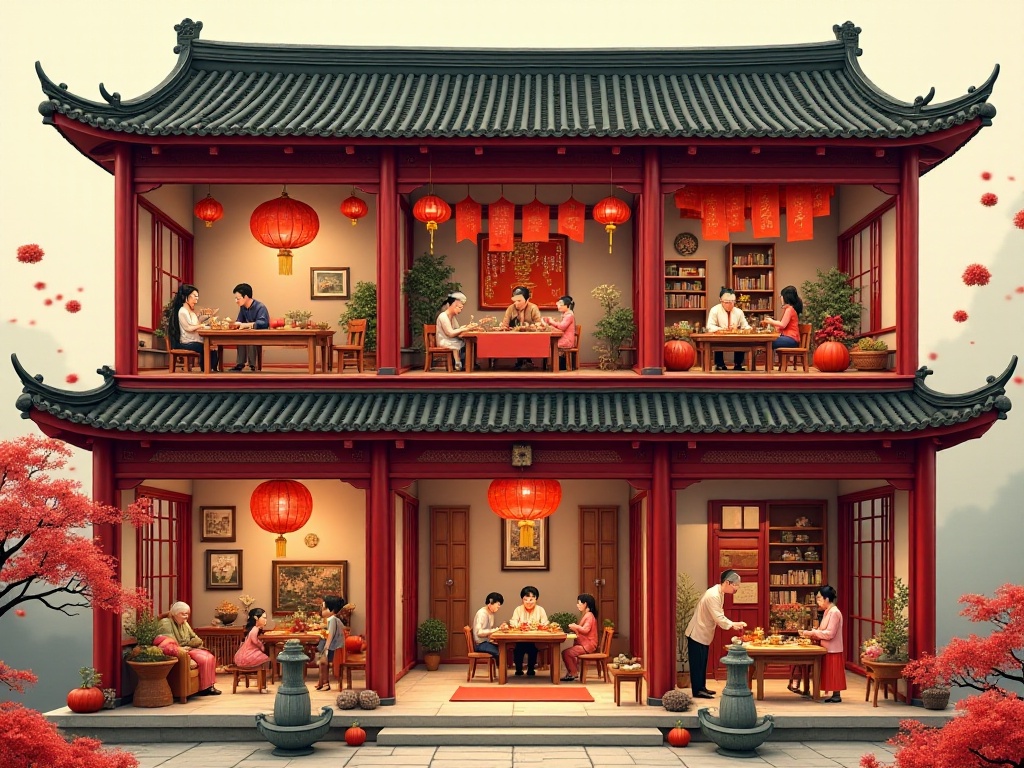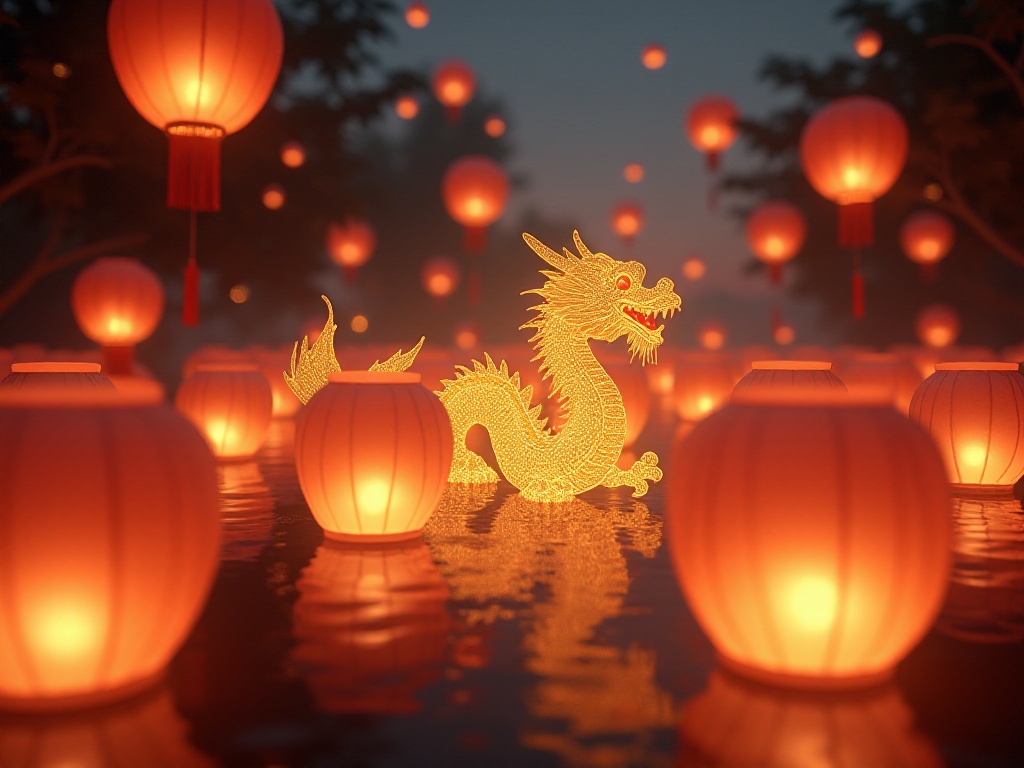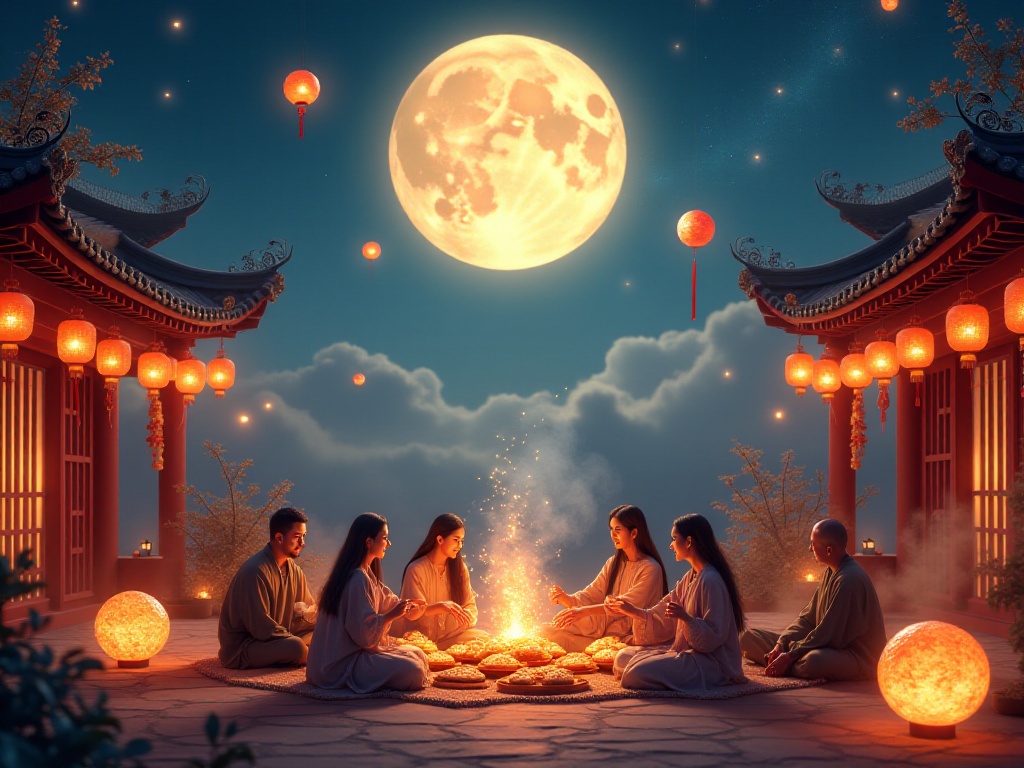Opening Remarks
As a post-95 Beijing native, I've been thoroughly "tortured" by these New Year customs since childhood! I found them quite troublesome when I was young, but now that I'm working, I realize how precious these traditions are. My grandfather always said that celebrating the New Year isn't just about eating and drinking casually - all those seemingly complicated customs embody the spirit of old Beijing people.
Preparations in the Twelfth Lunar Month
The hutongs of Beijing come alive as soon as the twelfth lunar month begins. Young people today might find it super convenient to buy New Year goods online, but I feel it lacks that special atmosphere. I remember my grandmother would take out her thick notebook at the beginning of the twelfth month, filled with detailed lists of things to prepare.
She would start preparing more than a month in advance, carefully selecting each item. Candies had to be bought from Yang Congxing in Dashilar, dried goods from Yueshengzhai at Tianqiao, and even couplets required a special trip to Liulichang. Back then, I thought she was being too particular, but now I realize it wasn't about being fussy - it was about loving life.
The markets were the liveliest places during the twelfth month. I remember one year when I went to Tianqiao with my grandmother to buy New Year goods - it was quite a spectacular scene. The calls of various vendors filled the air - those selling tanghulu (candied hawthorns), Beijing twisted fried dough, and roasted nuts, each shouting at the top of their lungs. Grandmother always said, "Good things must be bought early, or the best ones will be gone."
Speaking of worshipping the Kitchen God on the twenty-third day of the twelfth month, that was a major event. Young people today might consider it superstitious, but I see it as the wisdom of old Beijing people. The Kitchen God not only watches over our family's stove but also reports our family's behavior throughout the year to the Jade Emperor. So on this day, we must make offerings to the Kitchen God - candied melons, fruits, and incense were all essential.
I particularly loved this day as a child because I could eat grandmother's special candied melons. She would cook them until soft and coat them with a layer of white sugar frost. She said this was to ensure the Kitchen God would speak sweetly of us in heaven. Isn't this really just the old Beijing people's way of hoping for a better life?
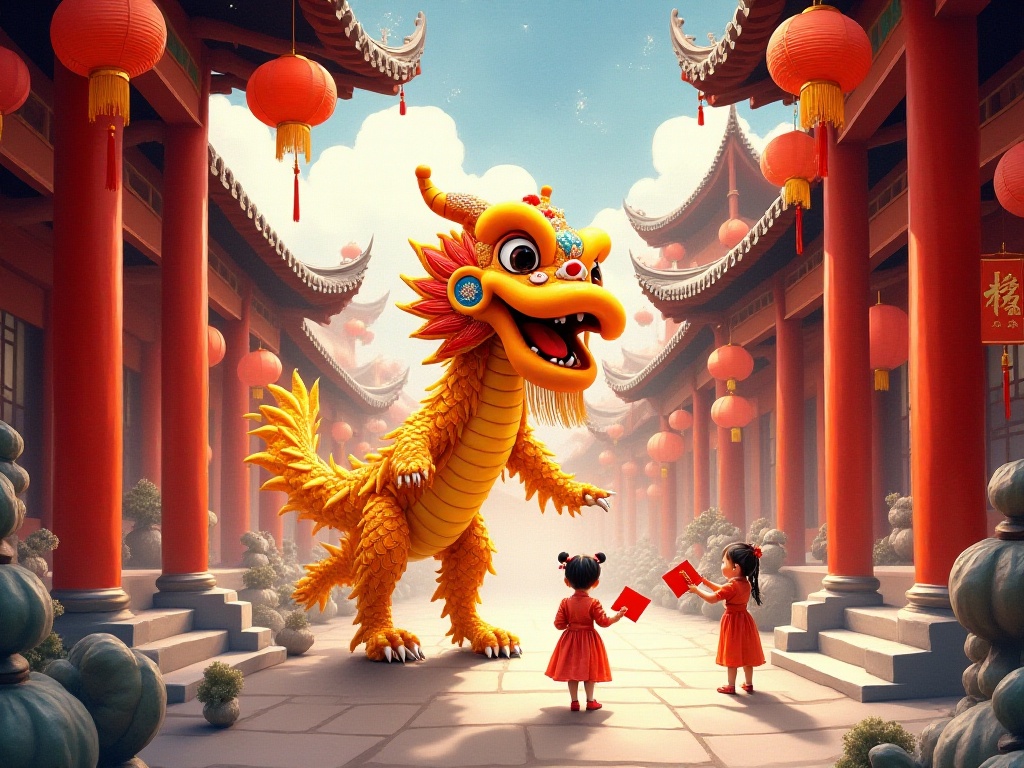
House Cleaning
The major cleaning on the twenty-fourth day of the twelfth month was truly a battle. Young people today might think hiring a hourly worker would suffice, but in the eyes of old Beijing people, this was a significant matter. My mother often said, "Your own home should be cleaned by yourself - no matter how thoroughly others clean, it's not as satisfying as doing it yourself."
Cleaning had its own rules. You had to sweep from inside to outside, from top to bottom. Dust on the ceiling, cobwebs in corners - nothing could be missed. Window screens had to be removed and washed in warm water, door frames and thresholds had to be wiped with cloth, and even door hinges needed to be oiled to prevent squeaking.
The most interesting part was the sweeping direction - it had to follow the direction of the house beams. My father said this was significant - the beams are the pillars of the family, and sweeping in their direction symbolizes family harmony and guides bad luck out. If you accidentally swept against the grain, you'd definitely get a lecture.
I remember one year when I thought it was too troublesome and just swept carelessly, thinking no one would notice. But my mother discovered it and redid all the areas I had swept. While sweeping, she said, "New Year's cleaning isn't just for show - it's about sweeping away the past year's bad luck so the new year can be smooth." I still remember these words very clearly.
After cleaning, the house would be incredibly bright. Sunlight streaming through the windows would reveal dancing dust particles in the air - it was quite therapeutic. No wonder old Beijing people say that when the house is clean, even your mood becomes brighter.
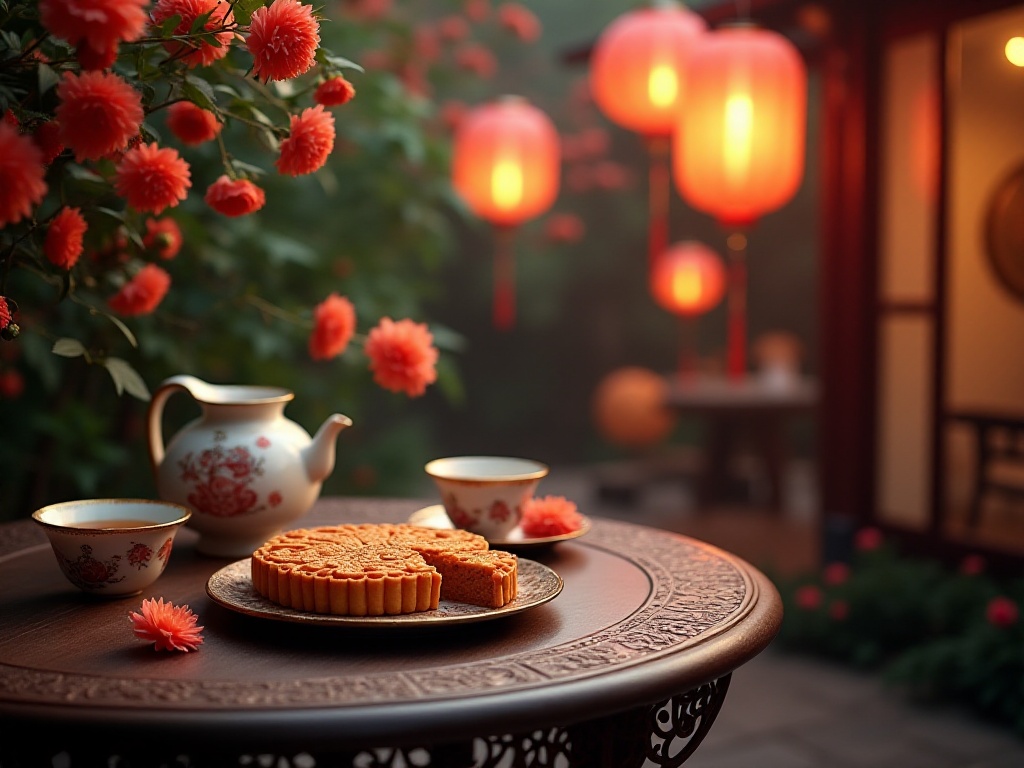
Hanging Spring Festival Couplets
Speaking of spring festival couplets, I have quite a bit to say. Many people now opt for printed couplets for convenience, but in old Beijing, this was taboo. My grandfather would always find a traditional calligrapher he knew to write the couplets specially - this had to be arranged more than a month in advance.
Writing couplets had its own rules - you needed good quality rice paper and ink, and special brushes for couplets. I remember watching the old master write couplets when I was young - it was quite a ceremony. First, he would grind the ink to just the right consistency; then he would dampen the rice paper slightly with warm water; finally, he would begin writing, each stroke showing his mastery.
Couplets should be hung on the morning of New Year's Eve - this is traditional. First, it allows the ink fragrance to blend with the New Year atmosphere, and second, it symbolizes new beginnings. There's also an order to hanging them - first the horizontal scroll above the door, then the vertical pairs on either side, and finally the "Fu" character.
Speaking of the "Fu" character, that's quite interesting. Old Beijing people love to hang it upside down - this isn't a mistake, it's intentional. "Fu upside down" sounds like "Fu has arrived" in Chinese - quite clever. Though some people now prefer to hang it right-side up because it looks better, either way is fine - what matters is the sentiment.
The content of couplets also has its conventions. Outdoor couplets usually contain auspicious phrases like "Spring returns to earth, a thousand doors bloom; Fortune fills the world, ten thousand homes prosper." Indoor couplets are more personal and can include blessings for family members. In our main hall, we always hang "Family harmony brings success in all things; Virtue brings natural fortune" - this was my grandfather's favorite pair.
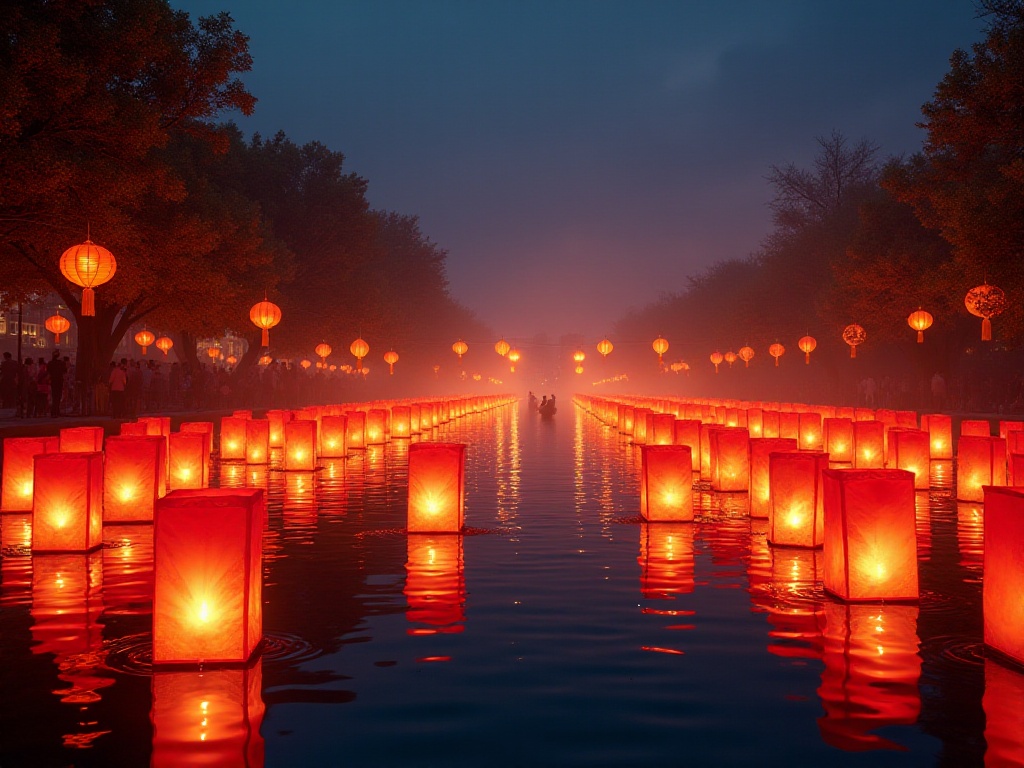
Staying Up on New Year's Eve
New Year's Eve is the liveliest time of the year. While many young people now prefer to celebrate the new year outside, in old Beijing, New Year's Eve must be spent at home. The whole family gathers to make dumplings, chatting and laughing together - it's truly delightful.
Making dumplings has its own rules too. First, the filling must balance meat and vegetables. My grandmother said this represents the balance of yin and yang - meat represents yang, vegetables represent yin, and eating them together is healthy. The filling must be prepared a day in advance to allow the flavors to fully blend.
The dumpling pleats must also be neat and tidy. My mother said this is about folding in good luck for the new year. When I was young, I found it troublesome and made messy ones, which always led to my mother saying, "These aren't dumplings anymore, they're more like buns." Now I realize this is about having the right attitude toward life - doing things properly.
The tradition of putting coins in dumplings isn't really practiced anymore, mainly for hygiene reasons. Old Beijing people prefer putting dates and peanuts in dumplings instead. Dates represent "early" and peanuts represent "birth" in Chinese, symbolizing wishes for early childbirth. While young people might not care much about this now, these beautiful wishes are still heartwarming.
Another important New Year's Eve custom is staying up late. Before television existed, people would gather around the stove to chat, discussing the year's achievements and hopes for the coming year. Although we now have the Spring Festival Gala, I think that feeling of gathering around the stove for conversation was the warmest.

The First Month
The first day of the lunar new year is truly the most important day of the year. There are many customs on this day, such as not sweeping the floor, as it's said to sweep away good fortune. Actually, there's practical consideration behind this custom - since thorough cleaning was done the day before, this day should be for rest.
Many people might not know about the tradition of eating vegetarian food on the first day anymore. Old Beijing people emphasize eating mainly vegetarian food on this day, supposedly to start the new year fresh and clean. Though young people today might think it's odd not to eat meat during the New Year, eating vegetarian occasionally is quite good - it's both environmentally friendly and healthy.
The tradition of setting off firecrackers is indeed no longer allowed in the city. But I remember when I was young, the whole hutong would be filled with firecracker sounds early on New Year's morning. People said it was to drive away evil spirits and welcome good fortune, but it was also about creating that festive atmosphere. Thinking back now, those sounds carried so many people's expectations for the new year.
Another important custom on the first day is visiting relatives and friends. Young people today might think sending a WeChat red packet is enough, but in old Beijing, this was an important social activity. You had to dress properly, bring gifts, and visit each household to give New Year greetings. Though it was tiring, that human touch is something digital red packets can't replace.
Casual Ending
Writing to this point, I feel quite emotional. When I was young, I always thought these rules were too troublesome and kept asking to simplify things. But now that I'm working, I really miss those complicated customs. Because it's these details that give our lives a sense of ceremony and help preserve traditional culture.
Every place has different ways of celebrating the New Year, just like how northerners love dumplings while southerners prefer rice cakes. But regardless of the custom, behind it all is the yearning for a good life. That's probably the most important meaning of the New Year.

Extra Tips
As a genuine old Beijing local, let me give you some tips. To experience the most authentic old Beijing New Year atmosphere, do this:
First, spring couplets must be bought from Liulichang. There are many time-honored stores there, and many couplets are handwritten by old craftsmen - though more expensive, they're worth it.
Then, you must buy some bean-filled tea snacks from Huguosi Snacks. These are essential New Year snacks in old Beijing - sweet and delicious, perfect for serving guests.
If you have the chance on New Year's Day, you must visit the Temple of Earth Fair. Although temple fairs are more commercialized now, you can still feel that traditional New Year atmosphere. Watch performances, buy snacks, visit the flower market - how lively!
But most important is that feeling. The New Year isn't about how grand the celebrations are, but about experiencing and passing on traditions with sincerity.
Reflective Conclusion
After finishing this article, I suddenly understand why the older generation values these customs so much. Celebrating the New Year isn't just about following traditions, it's about continuing a way of life aesthetics. Behind those complicated customs lies our yearning for a better life, our cherishing of family bonds, and our respect for traditions.
Life moves fast now, and many traditions are gradually fading. But I think some things are worth preserving. After all, these customs carry too many memories and emotions - they are the roots of our culture.
Don't you think so?


